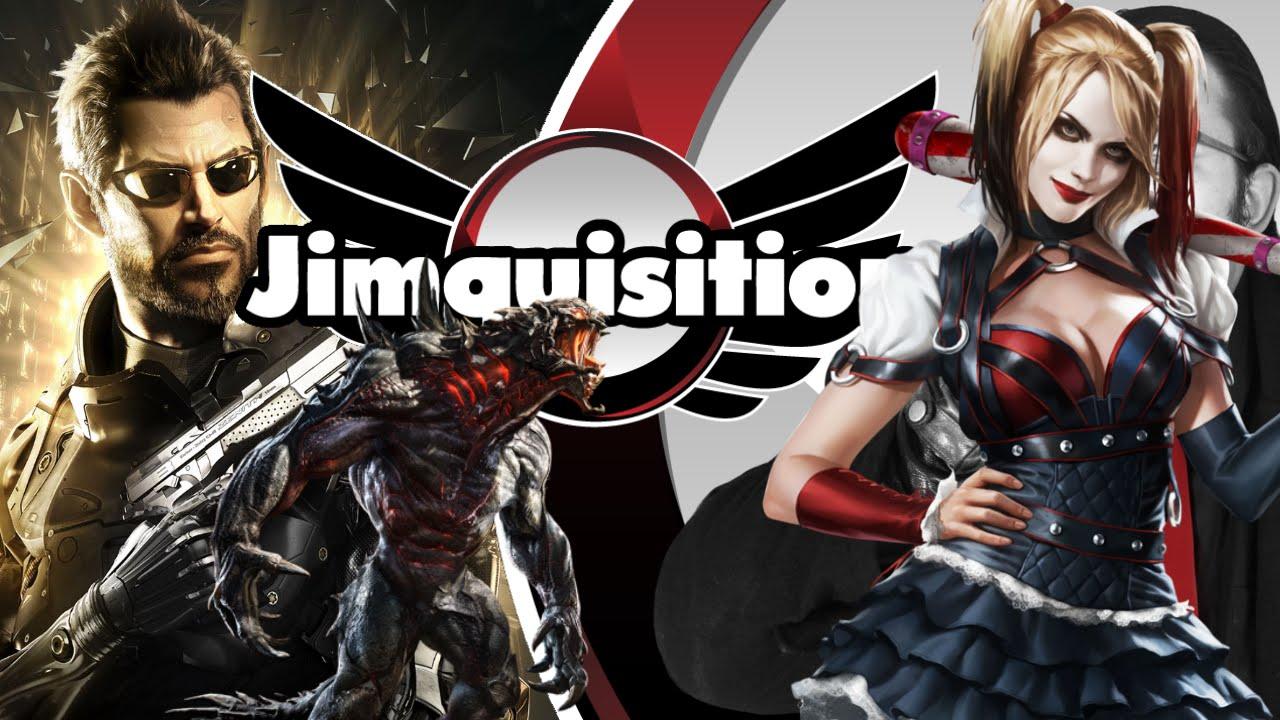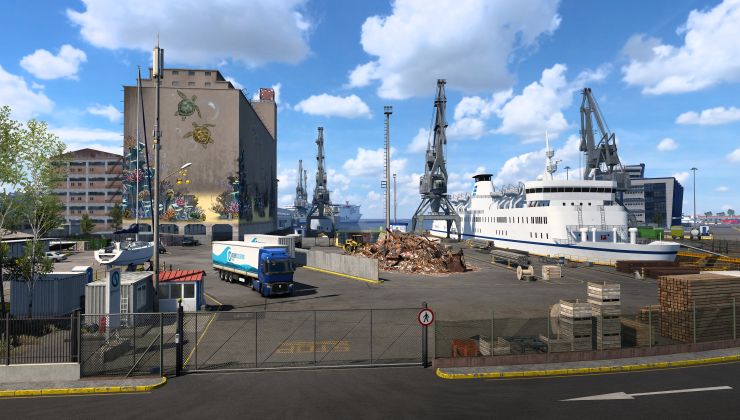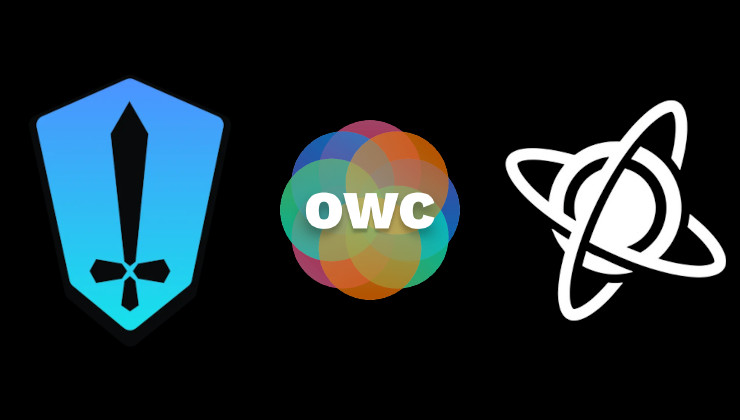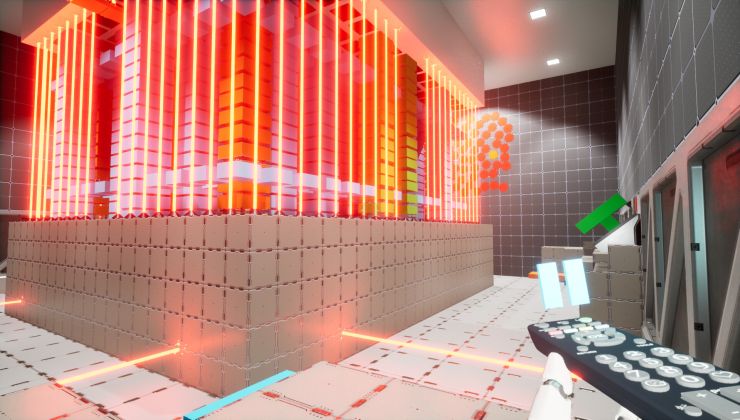Harmful buying habits is a topic that I've more than once gotten quite loud and obnoxious about on our IRC channel before. So, I figured I would write about these habits in an editorial form to be loud and obnoxious here too. So, let's talk about some shady and possibly harmful stuff.
Pre-Orders
This is a topic that has been talked about in great detail all over the Internet. Especially in the triple-A part of the games industry pre-orders pop up constantly. In today's world it appears that AAA games without some form of pre-order scheme are quite a rarity. Some smaller studios have done pre-order stuff for their games as well. Frictional Games, the developers of the Penumbra and Amnesia series and the recently released SOMA, comes to mind for example.
The biggest problem with pre-orders is that the customer is buying into something that is basically nothing more than a black box. Sure, the publisher will tell you that the box contains some awesome stuff but you really don't know what you got until you actually have the game. This is something that is very anti-consumer but it still gets spread around and quite a few people pre-order video games. The risk that is easiest to spot with pre-orders is that you can't know how good the game is actually going to be when it launches. After launch you will have a ton of information available: reviews, gameplay videos and forums full of sane and reasonable people. Okay, forget the forums but at least you have information that will help you with your purchases. Before launch you will only have the information provided to you by advertising organizations and select few outlets (that often end up just continuing the hype campaign) and like we've seen before, this information can be completely useless in many cases. Just check out what happened with Aliens: Colonial Marines if you want an example of such case. One which our editor Liam knows all too well with that game.
A factor that makes pre-orders even worse are the pre-order bonuses that many publishers and/or studios push very aggressively. They are playing with psychology quite effectively and tricking people into pre-ordering out of fear of possibly losing something if they decide to wait for the game to come out first. These pre-order schemes are also getting progressively worse as time goes on. If you would like to see one of the most shameless pre-order scam schemes, check out how you can “augment your pre-order” for Deus Ex: Mankind Divided.
I'd go as far as to say that some publishers push these pre-order schemes so aggressively because they want to get as much money out of the consumers before they get discouraged by the fact that the game is actually mediocre at best. They are putting less trust on the product and to be completely honest, if people keep on pre-ordering they don’t really have an incentive to make their games all that great, right?
If you wish to learn more about these nasty effects of pre-orders and the murky pre-order bonuses I can recommend the videos of these two fine gentlemen who are definitely a little bit more knowledgeable on the subject than myself.


On Linux there is also another problem with pre-orders. In some cases the game might drop Linux as a release platform after the pre-orders are already open. Someone on a bigger platform wouldn't have to worry about something like this but as a minority platform we definitely need to worry about this. This very thing happened some time ago with Gauntlet when Linux plans were suddenly dropped and some people who had pre-purchased the game were left with nothing.
Some people have also said that pre-ordering is a form of supporting the developers and that they only pre-order games from developers they really like and trust. Well, I suppose in some cases this could sort of be true but in general I disagree with that argument. Nowadays people seem to want to put discounts on pre-orders to draw people in, or they have some type of a bonus scheme for owning their previous games. In these kinds of situations, what you are actually doing is supporting the developers LESS than by buying at full price at launch. Buying the game a little bit early shouldn't matter either, since the developers should have plenty of money for all the final touches that will happen during the last couple of weeks before launch.
Key Resellers
Now this is something that I jump on quite aggressively when I notice people talking about it. Some of you might be quite confused at the moment, since many think key resellers are the best things ever. Well, I'll shed some light as to why this can be a very nasty thing indeed.
First of all, some of the big key resellers are actually quite shady, especially those that act as marketplaces for random users that want to sell their game keys. Sites like Kinguin and G2A have games for a ridiculously low price when compared to stores like Steam. Sometimes this is due to these resellers buying from cheap regions like South America and then selling to us in Europe or North America. Some could consider this alone to be a bit unethical but sadly, it gets even worse.
Both G2A and Kinguin have made it into tech news for selling stolen keys. These stolen keys are usually acquired by people pretending to be journalists, livestreamers or YouTubers with a following and then asking developers for keys. But instead of using these keys to promote or critique the game, like they are supposed to, the keys are immediately sold on these platforms for profit. And because they were acquired for free, the seller can place an extremely low price on the game and this in turn draws a lot of buyers.
The negative effect is two-pronged. First of all, it affects game sales and instead of the developers getting the money they rightfully deserve for making that game, an anonymous nobody gets the money instead. And secondly, real journalists, YouTubers and livestreamers will have to jump through hoops to get access to game keys due to the actions of these scammers.
There is a third problem associated with some key resellers that is specific to us as a small platform. Even though you buy a game from a legitimate reseller, your money might still end up in the wrong hands. Let me explain. Quite a few of the bigger games that we get are ported by third parties like Feral Interactive and Aspyr Media. These companies operate by tracking the buyer's operating system and they get paid for the sales that get marked as Linux. This means that a Windows sale will not result in them getting money. Many of the key resellers actually buy and sell keys that are marked as Windows keys. The keys will work on Linux, thanks to systems like Steam Play but the porting house doesn't get its cut. Once again, this is hurts the business of selling Linux games and can potentially stop or slow down future Linux porting efforts.
Buying Early
Wait, didn't I just talk about pre-orders? Yes, I did but I'm talking about a different kind of buying early and this is probably more common than pre-orders, which are currently quite rare on Linux due to the majority of triple-A ports being older games. I'm talking about buying a game that already exists and has possibly been available for some time already but hasn't been ported to Linux yet.
I'm fairly certain that pretty much all of us have done that. There's that one Windows game that you really want to play and it just so happens that it runs perfectly under Wine, so it's not like you are really missing anything. It's not really something that we can stop because not all games are going to come to Linux and running them on Wine is the best way to access them.
However, there are also cases where a Linux port of a game is announced or hinted at but some people decide to pick the game up before the port lands due to a big Steam sale or simply due to impatience. Now this is the actual problem with buying early and is something that I would heavily discourage.
Depending on the way the Linux port is handled, the negative effects can vary. A game that is getting ported by Feral or Aspyr will have the same negative effect as buying a game from a key reseller that only sells Windows games, the purchase happens on a platform that counts as Windows and the money goes to the original developers of the game and the porting house doesn't get its cut.
If the port is handled by the developers themselves they will still get the money. However, they won't see as big of a surge of Linux purchases after the port and especially with people buying the game and playing on Wine it might even make them consider porting the game to be wasted effort. These people will buy the game regardless, so why should we go the extra mile of bring it to them natively? In these types of scenarios it's more about rewarding the developer for bringing the game to us by buying the game when the port has been released.
Also, buying when it's out grants you access to important information about the stability and the performance of the port. A game with acceptable Windows performance might not work too well after the DirectX --> OpenGL conversion has happened, so you really need the Linux-specific information. And let's be completely real here, ports that are buggy or perform poorly (especially on AMD hardware) are not that rare. We get them every now and then and when we do, people will be disappointed. I think you remember what happened with The Witcher 2 when it was released for Linux. In the worst case scenario, buying too early might also make it impossible for you to refund the game, should the Linux port turn out to be unplayable.
Wrap up
As you can see, there are all kinds of nasty pitfalls out there that you will want to avoid for both your benefit and for the benefit of Linux gaming as a whole. We Linux people are quite few and the future of Linux gaming is definitely not a 100% certainty. Valve and the various porting houses we have are betting quite heavily on the success of Steam Machines and in the current state they most definitely aren't profiting as much as we would hope. And because we are so small for now, we should be mindful of our purchases. We should support people that bring us good games but also avoid wasteful behavior to make sure we have enough money to support those good new releases.
I'm definitely not telling you to buy every single game out there, that would make no sense and with the pace of new releases these days it's also borderline impossible. When you do find a game you have genuine interest in, however, make sure your money is spent in a way that will help the devs, the games industry and Linux gaming at the same time.
So, if you need a TL;DR: don't buy games before they are out for the platform you want to play that game on and make sure you buy from a store that gives the money to the right people.
Pre-Orders
This is a topic that has been talked about in great detail all over the Internet. Especially in the triple-A part of the games industry pre-orders pop up constantly. In today's world it appears that AAA games without some form of pre-order scheme are quite a rarity. Some smaller studios have done pre-order stuff for their games as well. Frictional Games, the developers of the Penumbra and Amnesia series and the recently released SOMA, comes to mind for example.
The biggest problem with pre-orders is that the customer is buying into something that is basically nothing more than a black box. Sure, the publisher will tell you that the box contains some awesome stuff but you really don't know what you got until you actually have the game. This is something that is very anti-consumer but it still gets spread around and quite a few people pre-order video games. The risk that is easiest to spot with pre-orders is that you can't know how good the game is actually going to be when it launches. After launch you will have a ton of information available: reviews, gameplay videos and forums full of sane and reasonable people. Okay, forget the forums but at least you have information that will help you with your purchases. Before launch you will only have the information provided to you by advertising organizations and select few outlets (that often end up just continuing the hype campaign) and like we've seen before, this information can be completely useless in many cases. Just check out what happened with Aliens: Colonial Marines if you want an example of such case. One which our editor Liam knows all too well with that game.
A factor that makes pre-orders even worse are the pre-order bonuses that many publishers and/or studios push very aggressively. They are playing with psychology quite effectively and tricking people into pre-ordering out of fear of possibly losing something if they decide to wait for the game to come out first. These pre-order schemes are also getting progressively worse as time goes on. If you would like to see one of the most shameless pre-order scam schemes, check out how you can “augment your pre-order” for Deus Ex: Mankind Divided.
I'd go as far as to say that some publishers push these pre-order schemes so aggressively because they want to get as much money out of the consumers before they get discouraged by the fact that the game is actually mediocre at best. They are putting less trust on the product and to be completely honest, if people keep on pre-ordering they don’t really have an incentive to make their games all that great, right?
If you wish to learn more about these nasty effects of pre-orders and the murky pre-order bonuses I can recommend the videos of these two fine gentlemen who are definitely a little bit more knowledgeable on the subject than myself.

YouTube videos require cookies, you must accept their cookies to view. View cookie preferences.
Direct Link
Direct Link

YouTube videos require cookies, you must accept their cookies to view. View cookie preferences.
Direct Link
Direct Link
On Linux there is also another problem with pre-orders. In some cases the game might drop Linux as a release platform after the pre-orders are already open. Someone on a bigger platform wouldn't have to worry about something like this but as a minority platform we definitely need to worry about this. This very thing happened some time ago with Gauntlet when Linux plans were suddenly dropped and some people who had pre-purchased the game were left with nothing.
Some people have also said that pre-ordering is a form of supporting the developers and that they only pre-order games from developers they really like and trust. Well, I suppose in some cases this could sort of be true but in general I disagree with that argument. Nowadays people seem to want to put discounts on pre-orders to draw people in, or they have some type of a bonus scheme for owning their previous games. In these kinds of situations, what you are actually doing is supporting the developers LESS than by buying at full price at launch. Buying the game a little bit early shouldn't matter either, since the developers should have plenty of money for all the final touches that will happen during the last couple of weeks before launch.
Key Resellers
Now this is something that I jump on quite aggressively when I notice people talking about it. Some of you might be quite confused at the moment, since many think key resellers are the best things ever. Well, I'll shed some light as to why this can be a very nasty thing indeed.
First of all, some of the big key resellers are actually quite shady, especially those that act as marketplaces for random users that want to sell their game keys. Sites like Kinguin and G2A have games for a ridiculously low price when compared to stores like Steam. Sometimes this is due to these resellers buying from cheap regions like South America and then selling to us in Europe or North America. Some could consider this alone to be a bit unethical but sadly, it gets even worse.
Both G2A and Kinguin have made it into tech news for selling stolen keys. These stolen keys are usually acquired by people pretending to be journalists, livestreamers or YouTubers with a following and then asking developers for keys. But instead of using these keys to promote or critique the game, like they are supposed to, the keys are immediately sold on these platforms for profit. And because they were acquired for free, the seller can place an extremely low price on the game and this in turn draws a lot of buyers.
The negative effect is two-pronged. First of all, it affects game sales and instead of the developers getting the money they rightfully deserve for making that game, an anonymous nobody gets the money instead. And secondly, real journalists, YouTubers and livestreamers will have to jump through hoops to get access to game keys due to the actions of these scammers.
There is a third problem associated with some key resellers that is specific to us as a small platform. Even though you buy a game from a legitimate reseller, your money might still end up in the wrong hands. Let me explain. Quite a few of the bigger games that we get are ported by third parties like Feral Interactive and Aspyr Media. These companies operate by tracking the buyer's operating system and they get paid for the sales that get marked as Linux. This means that a Windows sale will not result in them getting money. Many of the key resellers actually buy and sell keys that are marked as Windows keys. The keys will work on Linux, thanks to systems like Steam Play but the porting house doesn't get its cut. Once again, this is hurts the business of selling Linux games and can potentially stop or slow down future Linux porting efforts.
Buying Early
Wait, didn't I just talk about pre-orders? Yes, I did but I'm talking about a different kind of buying early and this is probably more common than pre-orders, which are currently quite rare on Linux due to the majority of triple-A ports being older games. I'm talking about buying a game that already exists and has possibly been available for some time already but hasn't been ported to Linux yet.
I'm fairly certain that pretty much all of us have done that. There's that one Windows game that you really want to play and it just so happens that it runs perfectly under Wine, so it's not like you are really missing anything. It's not really something that we can stop because not all games are going to come to Linux and running them on Wine is the best way to access them.
However, there are also cases where a Linux port of a game is announced or hinted at but some people decide to pick the game up before the port lands due to a big Steam sale or simply due to impatience. Now this is the actual problem with buying early and is something that I would heavily discourage.
Depending on the way the Linux port is handled, the negative effects can vary. A game that is getting ported by Feral or Aspyr will have the same negative effect as buying a game from a key reseller that only sells Windows games, the purchase happens on a platform that counts as Windows and the money goes to the original developers of the game and the porting house doesn't get its cut.
If the port is handled by the developers themselves they will still get the money. However, they won't see as big of a surge of Linux purchases after the port and especially with people buying the game and playing on Wine it might even make them consider porting the game to be wasted effort. These people will buy the game regardless, so why should we go the extra mile of bring it to them natively? In these types of scenarios it's more about rewarding the developer for bringing the game to us by buying the game when the port has been released.
Also, buying when it's out grants you access to important information about the stability and the performance of the port. A game with acceptable Windows performance might not work too well after the DirectX --> OpenGL conversion has happened, so you really need the Linux-specific information. And let's be completely real here, ports that are buggy or perform poorly (especially on AMD hardware) are not that rare. We get them every now and then and when we do, people will be disappointed. I think you remember what happened with The Witcher 2 when it was released for Linux. In the worst case scenario, buying too early might also make it impossible for you to refund the game, should the Linux port turn out to be unplayable.
Wrap up
As you can see, there are all kinds of nasty pitfalls out there that you will want to avoid for both your benefit and for the benefit of Linux gaming as a whole. We Linux people are quite few and the future of Linux gaming is definitely not a 100% certainty. Valve and the various porting houses we have are betting quite heavily on the success of Steam Machines and in the current state they most definitely aren't profiting as much as we would hope. And because we are so small for now, we should be mindful of our purchases. We should support people that bring us good games but also avoid wasteful behavior to make sure we have enough money to support those good new releases.
I'm definitely not telling you to buy every single game out there, that would make no sense and with the pace of new releases these days it's also borderline impossible. When you do find a game you have genuine interest in, however, make sure your money is spent in a way that will help the devs, the games industry and Linux gaming at the same time.
So, if you need a TL;DR: don't buy games before they are out for the platform you want to play that game on and make sure you buy from a store that gives the money to the right people.
Some you may have missed, popular articles from the last month:
Quoting: DevlinOn the other hand there are publishers like Larian that after Original Sin, which I also backed, won't received a cent from my wallet in the future until they release something that works on Linux. Leason learned here.You should not have to wait too long anymore. Enhanced Edition will be released in the end of October.
0 Likes




See more from me